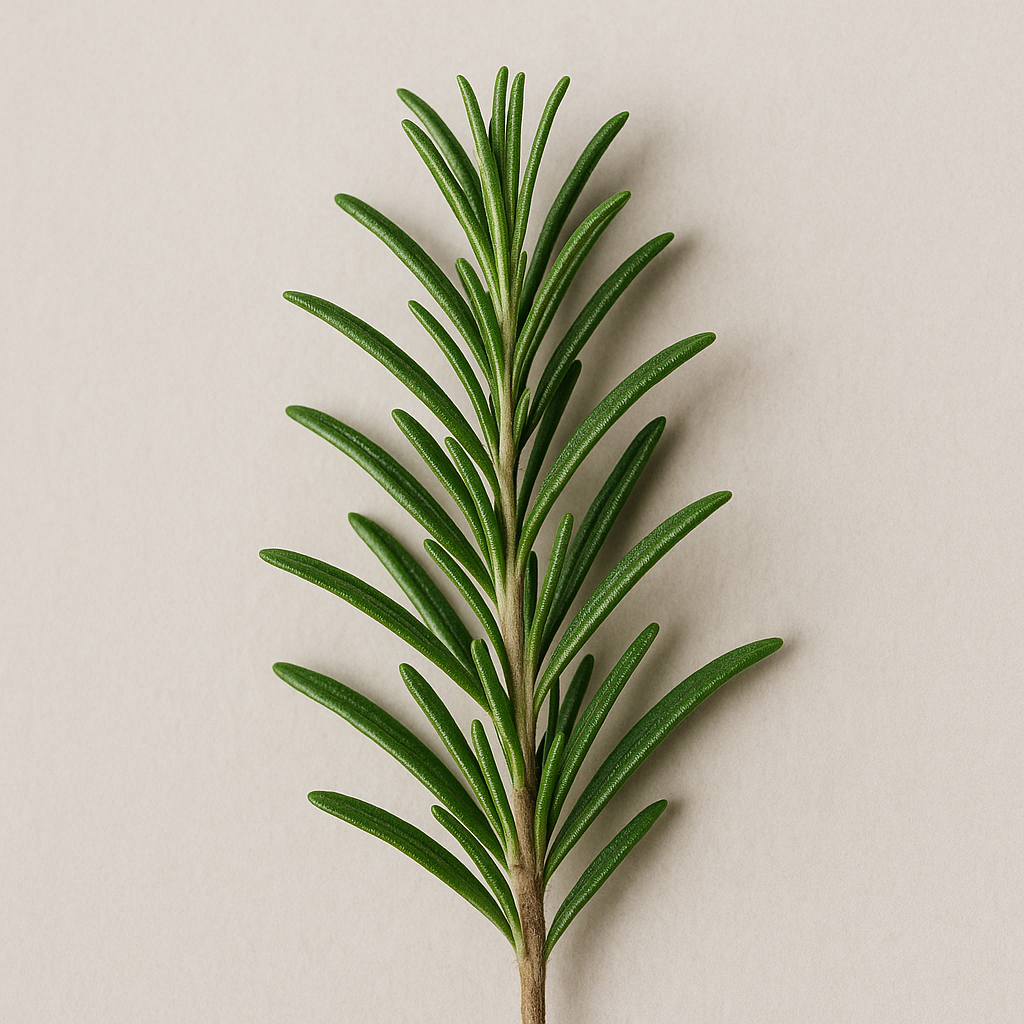Rosemary (Rosmarinus officinalis) is an aromatic herb widely known both in culinary and traditional medicine. Native to the Mediterranean region, rosemary has earned a place in gardens, kitchens, and herbal remedies around the world thanks to its distinctive aroma, ornamental beauty, and powerful therapeutic properties.
In this article, we will explore in detail the health benefits of rosemary, its traditional uses, and tips on how to grow it at home. Discover why this plant has remained so valued for centuries.
Properties of Rosemary
Rosemary is rich in bioactive compounds such as flavonoids, phenolic acids, tannins, and essential oils, including cineole, borneol, and rosmarinic acid. These compounds are responsible for its antioxidant, anti-inflammatory, antimicrobial, and stimulating effects.
The plant is also a source of vitamins A, C, K, and B-complex, as well as minerals like iron, calcium, magnesium, and potassium.
Main Health Benefits of Rosemary
1. Improves Memory and Concentration
Rosemary has long been known as the “herb of remembrance.” Modern studies suggest that the aroma of rosemary can help improve focus, logical reasoning, and short-term memory. This effect is linked to the stimulating action of cineole on the central nervous system.
2. Powerful Antioxidant Action
The antioxidants found in rosemary help neutralize free radicals, preventing premature aging and reducing the risk of chronic diseases like diabetes, cancer, and cardiovascular issues.
3. Relieves Pain and Inflammation
Topical use of rosemary essential oil is effective in relieving muscle and joint pain due to its analgesic and anti-inflammatory properties. It is often used in massage oils and aromatherapy.
4. Aids Digestion
In folk medicine, rosemary tea is used to treat digestive problems such as bloating, indigestion, and intestinal cramps. It works by stimulating bile production and improving overall digestion.
5. Boosts the Immune System
Thanks to its high content of vitamin C and antimicrobial compounds, rosemary helps strengthen the immune system and fight off bacterial and viral infections.
Traditional and Cultural Uses
Historically, rosemary was used by the Egyptians in mummification rituals, and by the Greeks and Romans in religious ceremonies. In the Middle Ages, rosemary was commonly placed in homes to ward off illness and bad energy.
In the kitchen, it is a staple of Mediterranean cuisine, used to flavor meats, vegetables, breads, and infused oils.
In Brazil and other parts of Latin America, rosemary tea is one of the most popular home remedies for colds, fatigue, and headaches.
How to Grow Rosemary at Home
Rosemary is a hardy plant that adapts well to various climates. Here are a few tips for growing it in pots or garden beds:
- Sunlight: Needs at least 6 hours of direct sunlight daily.
- Soil: Well-draining, preferably sandy.
- Watering: Moderate. Rosemary does not tolerate soggy soil.
- Pruning: Regular pruning helps the plant grow bushier and stay healthy.
With just a little care, you can enjoy fresh rosemary at home for cooking, tea, or medicinal use.
Precautions and Contraindications
Despite its many benefits, rosemary should be used in moderation. In large quantities, especially in the form of essential oil, it may cause irritation or side effects such as increased blood pressure.
Pregnant or breastfeeding women and people with epilepsy should avoid concentrated use without medical guidance. Always consult a healthcare professional before starting any herbal treatment.
Rosemary is a versatile, powerful, and easy-to-grow herb. Whether in tea, essential oil, seasoning, or aromatic baths, it offers numerous benefits for both body and mind. Incorporating it into your routine is a natural and accessible way to promote well-being and vitality.

Discover Rare and Beautiful Succulents
Looking for unique, healthy, and eye-catching succulents? At Leaf & Clay, you’ll find exotic varieties perfect for any indoor garden or tropical plant collection.
Explore their curated selection and get inspired to grow something extraordinary today!

